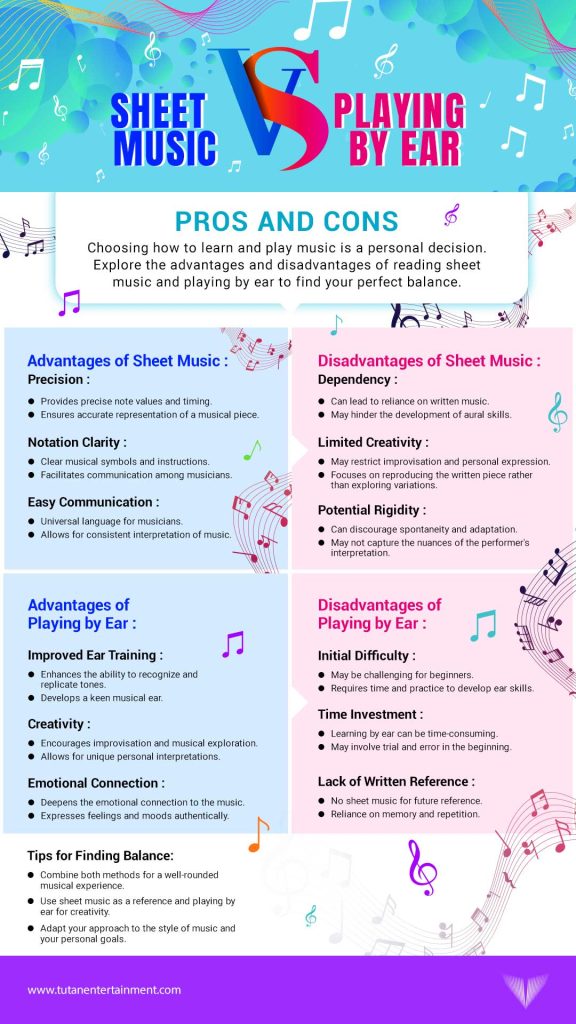Music is a universal language that transcends barriers and brings people together. Yet, there’s a common misconception that to truly master an instrument, one must be able to decipher complex sheet music. In reality, this couldn’t be further from the truth. Let’s explore why reading sheet music is not a requirement for playing music and how musical expression can thrive beyond the confines of notation.
Breaking Down the Barrier
Sheet music is undoubtedly a valuable tool for many musicians, providing a standardised way to communicate musical ideas. However, it’s important to recognise that it’s just one of many approaches to learning and performing music. In fact, throughout history, countless renowned musicians have achieved greatness without ever mastering the art of reading sheet music.
Musical Fluency vs. Sheet Music Literacy
While reading sheet music can enhance musical literacy, it’s not synonymous with musical fluency. Musical fluency encompasses a range of skills, including ear training, improvisation, and understanding musical structure, all of which can be developed independently of sheet music.
The Oral Tradition
Many musical traditions around the world rely on oral transmission rather than written notation. Jazz, blues, folk, and traditional music from various cultures often thrive through oral tradition, where musicians learn by listening, imitating, and innovating rather than reading from a score.
Improvisation and Creativity
One of the most liberating aspects of playing music without sheet music is the freedom to improvise and express oneself creatively. Improvisation allows musicians to tap into their emotions, explore new musical ideas, and engage in spontaneous dialogue with other musicians.
Accessible Learning Resources
With advancements in technology, aspiring musicians now have access to a wealth of learning resources beyond traditional sheet music. Online tutorials, instructional videos, and interactive apps offer alternative methods for learning instruments, catering to different learning styles and preferences.
Focus on Playing by Ear
Learning to play by ear not only strengthens listening skills but also fosters a deeper connection to music. By training the ear to recognize melodies, harmonies, and rhythms, musicians develop a more intuitive understanding of music that transcends the confines of notation.

Conclusion
In conclusion, while reading sheet music can be a valuable skill for musicians, it’s not a prerequisite for playing music. Musical expression flourishes in myriad forms, whether through improvisation, oral tradition, or playing by ear. By dispelling the myth that sheet music is the only path to musical proficiency, we empower aspiring musicians to embrace their unique musical journey and find joy in the act of making music, regardless of notation.
Remember, the true essence of music lies not in the symbols on a page, but in the passion, creativity, and soulful expression that emanate from every note played and every melody sung. So pick up your instrument, trust your ears, and let the music guide you on a journey of discovery and self-expression.



